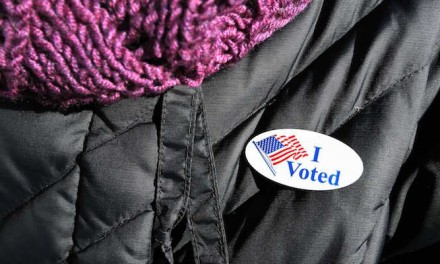If you’re at Brandeis University and want to tell someone they’re “killing it” or to follow a “rule of thumb,” you better bite your tongue.
The phrases, among many others, are considered violent according to a recently expanded “suggested language list” put together by the Prevention, Advocacy and Resource Center at the Waltham university.
Instead of “killing it,” the group recommends saying “great job” because, “If someone is doing well, there are other ways to say so without equating it to murder.”
The phrase “rule of thumb” should be replaced with “general rule,” because the saying allegedly comes from an old British law allowing men to beat their wives with sticks no wider than their thumb.
But even Brandeis concedes that “no written record of this law exists today.”
The Prevention, Advocacy and Resource Center serves members of the Brandeis community who have been impacted by violence, according to the center’s website.
The suggested language list is described as a compilation of alternatives to words and phrases with “roots, histories, and/or current usage that can serve to reinforce systems of oppression.”
The list is always growing, according to the PARC, which even corrected itself recently. The suggested language list was changed this month from its original name of “oppressive language list.”
“We did this in an attempt to center the suggested alternatives rather than the words and phrases that may cause harm,” read a footnote on the PARC website.
Even a “trigger warning” can be too triggering for some, according to the list of more than 50 words and phrases.
Trigger warning “can signify that something is imminent or guaranteed to happen, which may cause additional stress about the content to be covered,” so it’s best to just call it a content note.
If you have a white ribbed tank top, call it an “undershirt” instead of a “wife beater,” and instead of saying “you guys” just say “folks” to include all genders, the list suggests.
The list also flags the words “victim” and “survivor” and sayings such as “killing two birds with one stone” or “long time no see.”
A Brandeis spokesman said in a statement, “The list is not a list of prohibited language. Brandeis is firmly committed to principles of free expression. The list is simply a resource that can be accessed by anyone who wants to consider their own language in an effort to be respectful of others who may have different reactions to certain terms and phrases.”
The elite university charges $76,000 a year for tuition plus room and board. The fall semester at Brandeis kicked off this week.
___
(c)2021 the Boston Herald
Visit the Boston Herald at www.bostonherald.com
Distributed by Tribune Content Agency, LLC.
—-
This content is published through a licensing agreement with Acquire Media using its NewsEdge technology.



















Hey I have a great idea…how about we just tell Brandeis University to blow it out their back pipe….we aren’t buying what they are selling….period!
AND that should include ANY AND ALL federal funds going there..
One can add this school to the growing list of those NOT to attend.
“The phrases, among many others, are considered violent according to a recently expanded “suggested language list” put together by the Prevention, Advocacy and Resource Center at the Waltham university.” And here we have a group of people with way too much time on their hands.
You certainly expect better of educational institutions. You expect intelligence with a good dose of common sense—yet both of these are disappearing from our schools due to political correctness, wokeness, and censoring of free speech. If this is indicative of what is being graduated from our colleges and universities, we are putting out nothing but ignoramuses who memorized material for tests and received a degree simply for attending. This is pathetic.
Now, the actions of Joe Biden, his administration, and Congress make more sense. Look at what they got for an education.
How ludicrous, oh wait can I say that?
Only if you can misspell it and play what passes for music in our current world.
I wouldn’t attend it, even IF THEY WERE the ones paying me that 76k a year, tuition.
Ignoranuses would be more appropriate.
The way these stupid colleges run nowadays is that the professor is constantly in the lounge while a student teacher is actually running the classroom. The teacher is new and has no experience so they muddle through as best they can and the professor just sits back and plays with himself. It’s no wonder that piece of paper the college gives the students stating what degree they received is only good for wiping their rear end.
I’d not even use it for that..
If parents keep forking the bill for this BS then they deserve what they get. I still don’t get that it’s unwanted for students to say “bite your tongue”………….WTH?
OOPS: I said forking the bill……..wonder if that is unacceptable too!
True that. AS long as parents, go into hock, to PAY their kids to go to these establishments, it shows the MORONS IN CHARGE< that the parents care NOT about what they are doing to our language..
“The list is simply a resource that can be accessed by anyone who wants to consider their own language in an effort to be respectful of others who may have different reactions to certain terms and phrases.”
Being respectful of others is something we all should learn and try to do.
But
Ones emotions, desires or what they find offensive is entirely up to the individual.
They offend themselves.
I am a Christian and I wear a “Cross” around my neck. For two reasons,
#1. When I see it in the mirror, it reminds me that Jesus sacrificed
his life on the cross for my sins.
#2. It tell others that I am a Christian and I try to follow the Word of GOD.
and I thank GOD before I eat.
Now, if someone is offended by this, they offend themselves and I have no responsibility for them being offended.
I will not change my beliefs because someone is offended.
These people are insane.
ITS offensive to me, to CALL a hack facility, like this, a UNIVERSITY, or a place of higher learning..
This is what you get when you put liberals, sissies or Millennials in charge.
it’s time these people and those like them get a real life. Overly sensitive doesn’t nearly imply what this behavior entails. ‘Stiffle it!” was a common expression from a sitcom, that’s what these people should do. No one is listening except the likemided who are offended by just about everything. Well, the world is an offensive place that doesn’t care about anyone’s feelings so live with it! They might even learn to be tolerant, something they preach to other but rarely apply to themselves.
Why aren’t they offended by the Taliban firing squads?
They probably couldn’t give a rats BUTT, about what’s going on over there, other than “WE are finally out”..
Haole ,Honkly, Gringo, are still being used. These are racist words for white people ,so it’s ok??
Hey Brandeis (and those who think like them): Up Yours!
Another example of liberals never thinking things through, never asking themselves “And then what?”
The alternatives they insist we use have exactly the same meaning, so they need to be rejected and replaced too.
When do we run out of words and phrases to say anything at all?
The phrase “rule of thumb” should be replaced with “general rule,” because the saying allegedly comes from an old British law allowing men to beat their wives with sticks no wider than their thumb.
Actually this comes from Muslim law.
How about “SHOVE IT”???